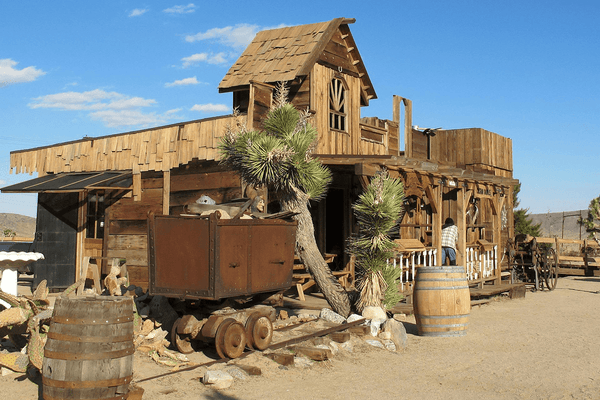WHAT IS A
HIGH RYE WHISKEY?
High rye whiskey is becoming increasingly popular as distilleries pursue new, more flavorful products. To understand what high rye whiskey is, you must first learn about regular and rye whiskey. Here is a breakdown of the essentials...

What Do You Need to Make Whiskey?
Whiskey is a broad liquor category that contains many distinctive specialties. Companies distill liquor from grain to make whiskey, then age it in wood barrels.
Each whiskey has a mash bill, basically the grain recipe. Different types of whiskey have specific requirements for their grain bills. The most common grains used for whiskey include corn, rye, wheat, and barley. Some distilleries also include more niche grains like millet, quinoa, and oats in their mash bill.
Whiskeys have at least 40% alcohol by volume (ABV), though many products have a higher ABV. Whiskey cannot contain other types of flavoring, so the product's taste comes from the mash bill, blending process, whiskey barrel, and the aging process.
What Is Rye Whiskey?
Rye whiskey is the fastest-growing whiskey product in the United States. To constitute a rye whiskey, the product must:
- Contain at least 51% rye in the mash bill.
- Age in a new charred oak barrel.
- Distill to a proof no higher than 160, or 80% ABV.
- Enter the barrel at 125 proof or less.
- Have at least 80 proof (or 40% ABV) when bottled.
Products labeled "straight rye" meet additional requirements. This type of rye whiskey must:
- Age for at least two years.
- Contain an age statement if aged for four years or more. This statement must use the age of the youngest rye in the batch when several barrels were in use.
- Contain no colorings, flavorings, or other spirits.
The remaining 49% of the mash bill for a rye whiskey usually features some combination of wheat, corn, malted barley, and malted rye. Some recipes may include other grains like oats or rice. The most common recipe for rye whiskey is around 51% rye, 39% corn, and 10% malted barley.
Since the rye is predominant, it delivers most of the flavor even in batches that aren't technically a high rye whiskey. Rye has a distinct spiciness that sets it apart from other grains. The overall flavor often comes across as peppery or grassy. Rye delivers a more flavorful kick than other whiskeys. Corn is usually in the mash bill for rye whiskey to soften and sweeten the finished flavor. The barley provides essential enzymes to help speed the fermentation process as starches convert to sugars.
What Constitutes High Rye Whiskey?
There is no official designation for a high rye whiskey. This phrase may refer to any whiskey that contains more than 51% rye. Some whiskeys with a higher rye content include:
- High-rye rye. That describes any whiskey with more than 51% rye but typically containing around 70% rye.
- Empire rye. Empire rye is a straight rye whiskey produced in New York State with at least 75% rye. This rye's distillation must occur during just one season.
- Monongahela rye. Also known as Pennsylvania-style rye, Monongahela rye originally contained 100% rye. Today, this whiskey has less rye in the mash bill, ranging from 68% to 95%. Monongahela rye has no corn, using malted barley for the remainder of the mash bill for a biscuit flavor. This product ages in deeply-charred oak barrels.
As craft distilleries experiment with high rye whiskey products, you'll likely find a broader range of options on the market with increasingly high rye profiles, tipping over 90% for the most impactful punch of flavor.
What Constitutes a Bourbon?
Bourbon is a form of whiskey made in the United States with at least 51% corn in the mash bill. The remainder usually contains rye or wheat, with some also featuring malted barley. Additionally, some distilleries use more uncommon grains such as oats, amaranth, and quinoa. Bourbon's flavor is usually sweeter than rye whiskey, and bourbon may have caramel, vanilla, and oak notes. Bourbon must also:
- Distill to no more than 80% ABV.
- Age in charred new oak barrels.
- Go into the barrel at no more than 62.5% ABV.
Additionally, bourbon must have a minimum of 40% ABV at bottling.
What Constitutes a High Rye Bourbon?
Since bourbon's mash bill is necessarily comprised primarily of corn, it can't have the same high rye content as a high rye whiskey. There is no official definition for high rye bourbon. As it is with high rye whiskey, nearly any product that contains more than the usual rye content may have a "high rye" classification.
A typical bourbon has around 12% to 15% rye. As a rule of thumb, a high rye bourbon will usually contain 20% to 35% rye on the mash bill. Combined with the required corn content, this leaves 29% to 34% of the mash bill open to other grains. Malted barley is one of the most common options for filling out the mash profile.
Increasing the rye content in a bourbon gives the finished liquor a distinctive spiciness. These bourbons often have aromas of baking spices and grass with lesser fruit notes. There's still far less rye than in a high rye whiskey, but that unique bite is much more subtle. However, when compared to a typical bourbon, you'll notice the sharper note in the flavor profile.
What is Sour Mash Rye Whiskey?
Sour mash rye whiskey uses the remaining mash from a previous batch of whiskey to provide continuity in the next. Distilleries make sour mash by removing some of the leftover mash from whiskey production and leaving it to ferment. This fermented mash helps regulate the pH level of the next batch while carrying over some of the previous batch's flavor profile.
Though you may not always see the term sour mash rye whiskey on the bottle, most whiskeys do include some sour mash. A sour mash rye whiskey may have a more robust flavor profile than a high rye whiskey made without the sour mash.
High rye whiskey and high rye bourbon both offer the opportunity to sample the unique kick of rye. Get sipping and see how you feel about these sharp and spicy flavor profiles.






